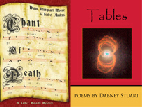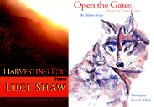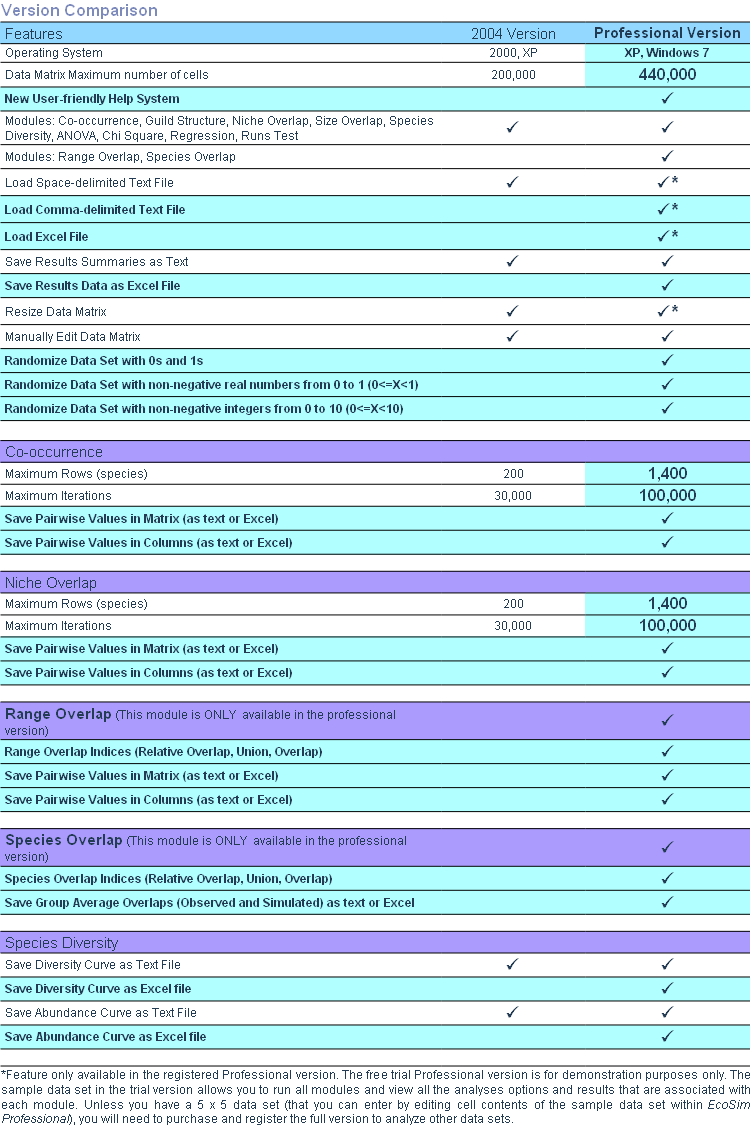
Page last updated: October 12, 2019
All pages copyright © 2019 by Acquired Intelligence, Inc.

Help support our free offerings... Shop at Pinyon Publishing.





Thanks!

Now Available: EcoSim Professional v1.1
EcoSim Professional is available for download and purchase.
To try EcoSim Professional for free: Download the Trial Version The trial version includes a sample 5 x 5 data set, with which you can run all modules and view all the analyses options and results that are associated with each module. To open your own data sets, you will need to purchase and register the full version.
To use the full EcoSim Professional: Purchase a single-user license by clicking the Buy Now button above. Within 24 hours, you will receive an email with instructions for how to register the trial version to make it fully-functional so you can resize and load new data sets!



FREE TRIAL
Download

$49.95
EcoSim Professional contains all the models in the free EcoSim “2004” version and also allows you to:
• Open space-delimited text files, comma-delimited text files, and Excel data files
• Increase the number of simulations for certain models
• Save pairwise values in matrices and in columns for the Co-occurrence, Niche Overlap, and Range Overlap models as space-delimited text files, comma-delimited text files, or Excel files
• Save species diversity and abundance curves as space-delimited text files, comma-delimited text files, or Excel files
• Create random matrices: "1,0" (e.g., presence-absence), "0<=X<1" (non-negative real numbers from 0 to 1), or "0<=X<10" (non-negative integers from 0 to 10).
• In addition, EcoSim Professional has improved menu and help systems and includes two new models:
• Species Overlap
• Range Overlap
• Range Overlap

With the free trial version of EcoSim Professional, you can use all modules with the sample data set provided. To open new data sets in EcoSim Professional, you must first purchase the professional single-user license ($49.95) so you can register your software and activate the full version.
For more information, contact gle@garyentsminger.com.

ECOSIM: NULL MODELING SOFTWARE FOR ECOLOGISTS
EcoSim is an interactive computer program for null model analysis in community ecology.
Copyright © 2019
by Acquired Intelligence, Inc., & Pinyon Publishing
EcoSim Professional and EcoSim 2004 are user-friendly, interactive Windows programs for null model analysis in community ecology. EcoSim was programmed by Gary Entsminger (1995-2004). Since 2004, Gary has continued to support, revise, recompile, correct, and add features to EcoSim. Thanks to the many hundreds of users who have written important papers, recommended features, and pointed out problems in the old versions of EcoSim. You have helped make EcoSim Professional state of the art software.
The original EcoSim was developed and compiled with software that no longer exists, and thus to implement and correct EcoSim required a complete revision of the program using current state of the art software. Since corrections can no longer be made to the original EcoSim code, and because we can no longer support that program, we have nicknamed the last version compiled in 2004 "EcoSim 2004" to avoid confusion. We will continue to provide a free and unsupported download of the 2004 version for classroom purposes (see below). However, if you're doing serious work with EcoSim (publishing papers, etc.), we strongly advise you to use EcoSim Professional, which Acquired Intelligence and Pinyon Publishing will continue to support.
We have also completely revised the Help System to make it more useful and user-friendly. The Help System details many of the changes in the program during the past seven years. Thanks to Dr. Explain for providing its excellent software for Help System development.

LISTEN:
Everyone is rarefying now
EcoSim allows you to test for community patterns with non-experimental data. EcoSim performs Monte Carlo randomizations to create “pseudo-communities,” then statistically compares the patterns in these randomized communities with those in the real data matrix. These null model tests have wide applicability in both applied and basic ecology. Kinds of questions you can ask with EcoSim are:
1) Is the species richness and evenness of unpolluted streams significantly different from that of polluted streams?
2) Is there evidence for unusual segregation in diet or perching microhabitats of co-occurring lizard species?
3) Does the taxonomic diversity of an avian island community differ from that of the adjacent mainland source pool?
